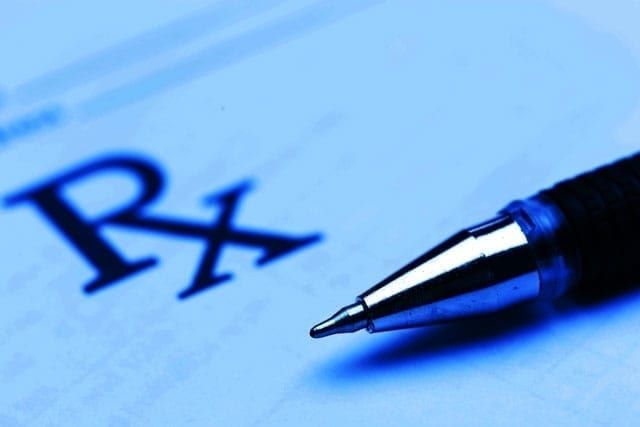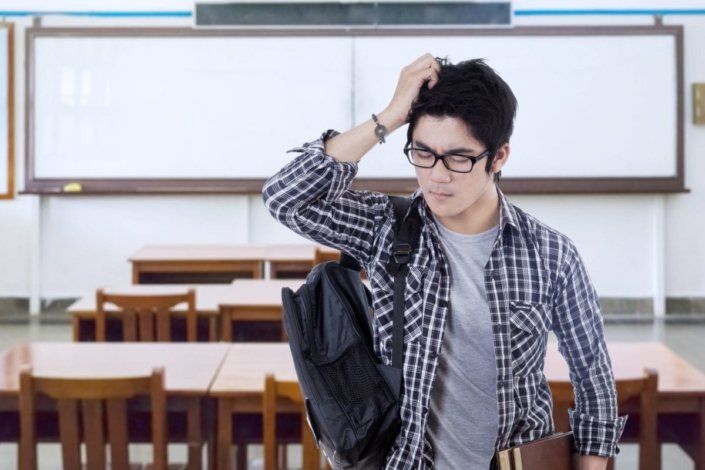Teenagers and Head aches
Headaches don’t simply distress in your mind. You might feel a sharp discomfort, dull ache, or throbbing in a variety of areas of your mind. The pain may also affect that person and neck. A head ache might seem like something just grownups complain about when they’re stressed. However, head aches are perhaps one of the most common difficulties reported by kids and teenagers. Nearly 75% of kids have reported getting a substantial headache by age 15. Most head aches in teens are minimal and may be easily treated. Nevertheless, some headaches could be serious and may be considered a sign of a far more serious problem.


If headache discomfort is getting in the form of your day to day activities, it’s time and energy to see your loved ones doctor. Read Even more
by Dr. Jennifer Hanna
Way to Improved Wellness
There are many forms of headaches. Tension head aches will be the most typical type experienced by teenagers. They are usually due to stress, tension, or depressive disorder. They are able to also be due to eye strain and throat or back stress from having poor position. Tension headaches usually result in a mild to reasonable ache or stress in a “band” over the forehead. Your teen may have this sort of headache from time to time or chronically (a lot more than 15 periods per month).
Assist your child avoid tension head aches by following these pointers:
- Relax. Discover methods to work in leisure time in a occupied schedule. Manage your tension from family, friends, function, or college.
- Eat a well balanced diet. Missing out meals and not consuming a nutritious diet plan can donate to headaches.
- Get enough rest. Unplug from consumer electronics and go to sleep at a good time every night.
- Avoid drugs and alcohol. The consequences of alcohol and medication use could cause headaches, along with many other health issues.
- Exercise thooughly your body. Exercise reduces stress and can help you sleep better. The body releases endorphins during workout. They are your body’s organic painkillers.
- Exercise thooughly your eyes. Attention strain causes headaches. Once we spend more period looking at screens, it’s vital that you give your eye a break. Look from your screen at the very least every 20 mins.
- Use temperature or ice. Apply heat, like a heating system pad, or an ice pack (covered in a towel) to sore muscle groups. A warm bath or shower also may help.
- View your posture. Make an effort to keep your back again and shoulders direct when walking and seated.
Tension head aches can generally be treated by firmly taking over-the-counter (OTC) discomfort relievers. Included in these are ibuprofen (brands: Advil, Motrin), acetaminophen (brand: Tylenol), and naproxen (brand: Aleve). If these medications don’t appear to help, speak to your family physician about other options. You can find pain relievers that blend caffeine or sedatives and also prescription medicines that may help.
Usually do not provide aspirin for headaches treatment to children beneath the age group of 15. It could lead to Reye’s syndrome, a uncommon disorder children will get when recovering from a sickness.
Your teen could also experience other styles of headaches.
- Acute headaches usually happen due to a sickness, infection (such as for example sinusitis, or sinus illness), cold, or fever. However they can furthermore be due to tension. These headaches could cause sharpened or throbbing discomfort in the top, neck, or encounter. They can be dealt with with OTC discomfort relievers and usually disappear completely once the medical issue is treated or stress is relieved.
- Cluster headaches strike quickly and trigger severe pain, generally around one attention but can distribute across that person, head, throat, and shoulders. These take place in “cluster intervals” that may last weeks or a few months. These kinds of headaches are uncommon and will be treated with medication.
- Migraines cause reasonable to severe discomfort and throbbing in leading and both sides of the top. Your teen could also knowledge dizziness, blurred eyesight, fever, abdomen upset, and also vomiting. She or he is quite sensitive to lighting, smells, and sound and desire to sleep when encountering a migraine.
Speak to your physician about medicines along with other treatment choices for migraine headaches. Keep an eye on your teen’s migraine triggers, such as for example lack of sleep, food items, environmental changes, or tension. Once you learn what triggers them, it is possible to help your teen stay away from obtaining a migraine.
How do you understand if my teen’s headaches certainly are a indication of something much more serious?
If your child is experiencing severe signs and symptoms such as sudden lack of stability, numbness, paralysis, speech problems, or seizures, look for medical attention right apart. Call your loved ones doctor; she or he may want one to go right to the er.
Most head aches are often treatable and are usually not just a sign of a far more serious medical issue. Head aches may improve as your child gets older. Nevertheless, if your teen’s head aches have become more frequent, the discomfort and symptoms are receiving worse, and/or discomfort medicines do not appear to be assisting, it’s time and energy to visit your loved ones doctor.
She or he will enquire about your teen’s wellness history and information regarding their headaches. Keep an in depth log to monitor their headache triggers, signs and symptoms, frequency, and remedies. Your doctor will perform physical exam. She or he will look for issues with your teen’s temp, inhaling and exhaling, pulse, and blood circulation pressure. Should they suspect a main nervous system problem, they’ll order or perform CT scan or MRI check to consider abnormal locations in the mind.
In uncommon occasions, chronic, progressive head aches can be a indication of a significant underlying medical issue in your child. These circumstances could include:
- Brain infections.
- Meningitis (irritation of the membrane within the brain and spinal-cord).
- Hydrocephalus (unusual fluid build-up on the mind).
- Bloodstream clots.
- Tumors and abscesses.
- Head trauma.
Points to consider
Headaches, specifically migraines, could be hereditary. Children who’ve migraines usually have a minumum of one parent who will get them, as well. They could inherit abnormalities in a few areas of the mind. They could also inherit the inclination to be suffering from migraine triggers such as for example bright lights and climate changes. It is very important tell your physician if your teen includes a family history of head aches or neurological condition.
